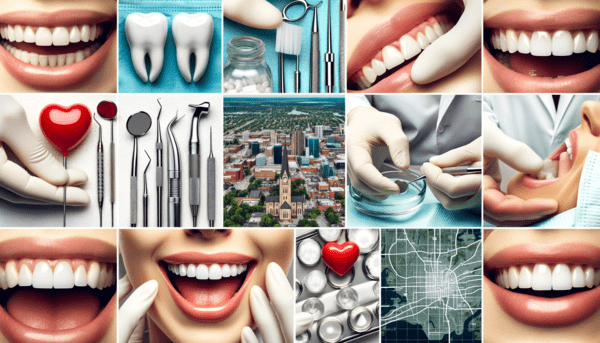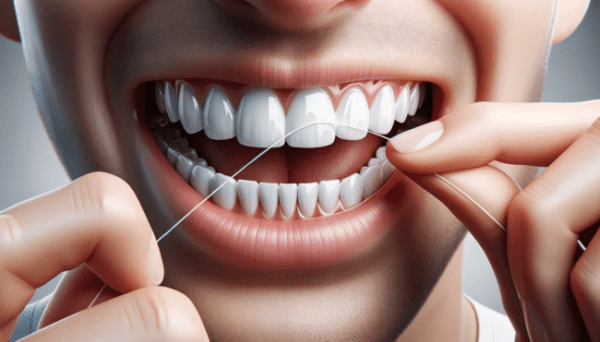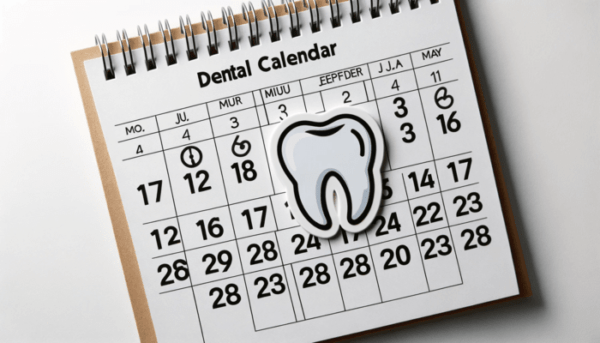Welcome to this comprehensive guide on dental hygiene, specifically designed for residents of London, Ontario. Dental health is not merely a component of your well-being; it’s a critical aspect that often reflects your overall health.

External Link: CDC’s Comprehensive Guide on Oral Health
Why Dental Hygiene is Important


Dental care extends beyond the prevention of cavities and tooth decay. Poor oral health can lead to a range of complications, including gum disease and even cardiovascular issues. Therefore, maintaining good dental hygiene is imperative for overall health.
External Link: Scientific Study on Oral Health
The State of Dental Health in London, Ontario
Good dental hygiene is crucial, regardless of where you reside. However, if you’re living in London, Ontario, it’s particularly important to be informed about the local dental health landscape. This knowledge can help you make educated choices when it comes to selecting a dentist or dental clinic. Make sure to keep reading, as we’ll be sharing valuable tips on maintaining excellent oral hygiene and offering suggestions on how to find quality dental care services in London, Ontario.
Tip #1: Brushing


One of the foundational elements of dental hygiene is regular brushing. The recommended guideline is to brush for two minutes, twice a day. The technique matters as well; it’s advisable to use gentle, circular motions to effectively remove plaque without causing gum irritation. If you follow this step by step guide – you really can’t go wrong:
-
Gather Supplies: Make sure you have fluoride toothpaste, a soft-bristled toothbrush, and dental floss.
-
Wash Hands: Always start by washing your hands with soap and water.
-
Wet Toothbrush: Slightly wet the bristles of your toothbrush with water.
-
Apply Toothpaste: Place a pea-sized amount of fluoride toothpaste on the bristles.
-
Position Toothbrush: Hold the toothbrush at a 45-degree angle to your gums.
-
Brush Outer Surfaces: Use gentle circular motions to brush the outer surfaces of your teeth. Avoid using a back-and-forth motion.
-
Brush Inner Surfaces: Tilt the brush vertically and use up-and-down strokes to clean the inner surfaces of the front teeth.
-
Brush Chewing Surfaces: Use a back-and-forth motion to clean the chewing surfaces of the molars.
-
Brush Tongue: Gently brush your tongue to remove bacteria and freshen breath.
-
Two-Minute Rule: Make sure to brush for at least two minutes, spending an equal amount of time in each quadrant of your mouth.
-
Rinse: Rinse your mouth with water or mouthwash to remove any leftover debris.
-
Clean Toothbrush: Rinse your toothbrush thoroughly and let it air dry.
-
Floss: Use dental floss to remove any food particles or plaque between teeth.
-
Final Rinse: Rinse your mouth one final time with mouthwash for extra freshness and protection.
-
Check: Take a moment to check your teeth in the mirror to make sure you didn’t miss any spots.
-
Replace Toothbrush: Make sure to replace your toothbrush every 3-4 months or sooner if the bristles are frayed.
Tip #2: Flossing


Flossing is an often-overlooked but crucial part of a comprehensive dental care routine. It reaches the areas between teeth that are inaccessible to a toothbrush. Incorporating flossing into your daily routine can significantly reduce the risk of gum disease and cavities.
Along with flossing, using an interdental pick is a fantastic way to maintain good oral health. These tools are a necessary process to keep your teeth, gums, and oral health in top shape.
Tip #3: Use of Mouthwash


Mouthwash serves as an additional measure to maintain oral hygiene. It can reach areas that are often missed by brushing and flossing. Different types of mouthwashes are marketed to serve various purposes, from fighting bacteria to strengthening tooth enamel. As a Dental Hygienist with several years of study and professional practice, I strongly recommend that you get in the habit of using water.
Many of the commercial mouthwash that are available are actually not a great benefit to your oral biome – that is the medical term for your mouth, gums, tongue, and teeth. They can dry out or even damage your oral biome, and since we live in London Ontario where there is extra fluoride in our water – that is the best and most natural choice for you to use.
Tip #4: Diet and Dental Health


Your diet can significantly impact your oral health in addition to helping you maintain a healthy waist size. It may surprise you to learn that your diet has a significant impact on both your gums and your teeth. Diets high in calcium, such as leafy greens and dairy products, are the finest things for your teeth. They aid in maintaining the strength of your teeth and strengthening the enamel.
However, it’s important to know what to avoid as well as what to eat. Dental health’s worst enemies are sugar-filled snacks and drinks. They may eventually result in cavities due to plaque accumulation. Consider the potential damage to your teeth the next time you go for a soda or candy bar. They might taste good now – and there is not an issue have sweets once in a while, yet reaching for that sugar high on a regular basis is going to cause problems.
“How do I know what’s best for my teeth?” is probably what’s on your mind right now. That’s where the role of healthcare practitioners comes in. You’re in luck if you’re in London, Ontario! There are several dentists in the city that can help you create a diet that not only pleases your palate but also maintains the health of your teeth and gums. If you have special considerations to your diet, need to be careful due to allergies, illnesses, or other health concerns be sure to check with a registered dietician as well.
External Link: CDC’s Comprehensive Guide on Oral Health
Tip #5: Regular Dental Check-ups


Regular dental check-ups are crucial for maintaining optimal dental health. These visits allow for the early detection of potential issues such as cavities or gum disease. Residents of London, Ontario, have access to various dental clinics offering comprehensive dental check-ups.
External Link: Specialized Oral Care Techniques
Conclusion
In summary, dental hygiene is an integral aspect of your overall health and well-being. This guide has aimed to provide residents of London, Ontario, with actionable tips and resources to maintain optimal dental health. From the basics of regular brushing and flossing to the importance of diet and regular dental check-ups, each element plays a crucial role in your oral health.
It’s also essential to recognize the value of local dental healthcare providers and services available in London, Ontario. Whether you’re looking for a dentist, dental clinic, or specialized dental care, the city offers a range of options to meet your needs. Here at Paradigm Dental Therapy, we offer the solutions to your dental health concerns. If you are looking for a specialist that can support your dental care, be sure to reach out to us and we would be happy to make a recommendation for you. You can find us at www.paradigmdt.com, through email at [email protected], through phone at (226) 980-9822, and of course we would love to see you in person at our office at 532 Adelaide St. North, here in London.
By implementing these tips and making informed decisions, you can not only improve your dental health but also contribute to your overall quality of life. Thank you for taking the time to read this comprehensive guide. We hope it serves you well in your journey towards achieving and maintaining excellent dental health.
Questions People Are Asking:
-
How much fluoride is added to London’s drinking water?
- Fluoride levels in London’s drinking water are regulated but the exact amount can vary. It’s best to consult local health units for accurate information[1].
-
Where can I find dental treatment in London, Ontario?
- Dental offices and clinics are available throughout London and Middlesex County[1].
-
How can I book an appointment with a dentist in London, ON?
- You can book an appointment online or via phone with various dental services providers in London, ON[3].
-
What are the signs of poor dental hygiene?
- Signs include bad breath, bleeding gums, and frequent cavities.
-
How often should I visit the dentist?
- Regular dental visits are generally recommended every six months but may vary based on individual needs. Regular visits to your Dental Hygienist are also recommended and can be a cost savings for you as well.
-
What precautions are dentists taking for COVID-19?
- Dentists are following guidance from Public Health Ontario for in-person care of suspected or confirmed cases of COVID-19[7].
-
How can I find a reliable dentist in London, Ontario?
- Online directories and recommendations from healthcare providers can assist in finding a reliable dentist[5].
-
What should I discuss with my dentist?
- Discuss your dental history, any issues you’re facing, and ask for suggestions on dental care options.
-
Is dental care covered by insurance in Ontario?
- Dental care coverage varies by insurance plans and it’s best to consult your provider for details.
-
What foods should I avoid for better dental health?
- Avoid sugary snacks and drinks to prevent tooth decay and gum disease.


